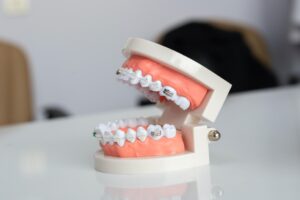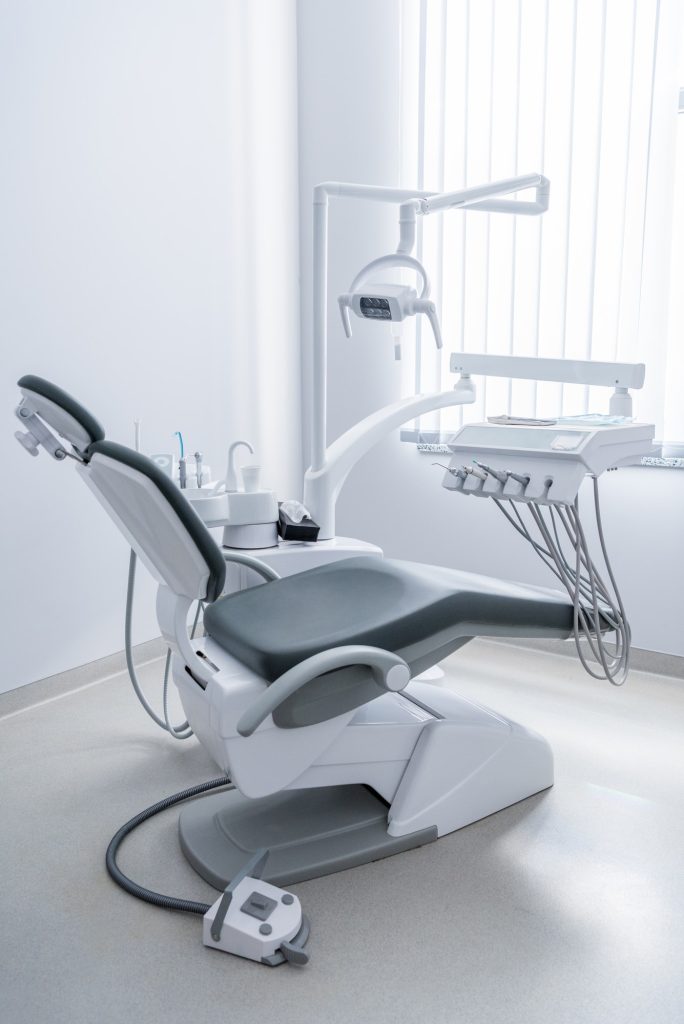If you’re unhappy with your smile, several options are available. Porcelain and composite veneers both offer ways to improve the appearance of your teeth, but there are differences between the two that you should be aware of before making a decision.
In this blog post, we’ll cover the basics of each type of veneer and the pros and cons of each. By the conclusion of this article, you’ll be able to confidently decide which option best suits your needs.
What Are Porcelain Veneers?
Porcelain veneers are thin shells of ceramic placed on your teeth’ fronts. They’re custom-made for each patient and can cover a wide range of cosmetic issues. Once the veneers are made, they’re bonded to the teeth using a special adhesive. The process usually takes two or three appointments, but the results can last for 10-15 years or even longer with proper care. Porcelain veneers offer several benefits, including:
1. Natural Look: Porcelain veneers can match the natural colour of your teeth, so they blend in well with the rest of your smile. They’re also translucent, allowing light to pass through and reflect off the teeth, giving them a more realistic appearance.
2. Durable: Porcelain veneers are strong and can withstand normal wear and tear during daily use. They’re also stain-resistant so that they won’t become discoloured over time.
What Are Composite Veneers?
Composite veneers are crafted from a beautiful, natural-looking resin that closely mimics the colour of your teeth, applied to the front of your teeth. They’re also custom-made for each patient and secured firmly onto the teeth with an adhesive designed to last. The process usually takes one appointment, and the results can last for 5-7 years with proper care. Composite veneers are a popular choice because they require less natural tooth preparation than porcelain veneers. They offer several benefits, including:
1. Cost-Effective: Composite veneers cost substantially less than porcelain varieties, making them a more budget-friendly option for many individuals.
2. Reversible: Because composite veneers require less preparation of the natural tooth, they’re a reversible option. If you decide to remove them, your natural teeth will remain intact.
However, veneers made from composite materials do have some drawbacks. They’re not as strong as porcelain veneers and can chip or wear down over time. They’re also more prone to staining than porcelain veneers.

Who Can Benefit From Getting Dental Veneers?
Dental veneers are a great option for individuals seeking to enhance the appearance of their smile. For example:
- People with dull, cracked, or deteriorated teeth
- Those who possess a gap-toothed smile
- Those with crooked, misshapen teeth
- Individuals who have suffered from dental trauma such as a broken tooth.
- Patients wishing to take their tooth whitening results beyond the limit of what is available through traditional treatments.
Different Techniques For Porcelain And Composite Veneers Placement
Both types of veneers have unique advantages, but what’s most important is finding the best technique for placement. With porcelain veneers, the process involves removing a small amount of tooth enamel to make space for the porcelain veneer, which is then bonded over the natural tooth. However, for direct composite veneers, the composite resin is applied directly onto the natural tooth and can be sculpted to mimic the look and feel of the surrounding teeth. As with any dental procedure, it’s essential to consult with a professional to determine which technique is best suited for you.
What Factors Should You Consider When Choosing Between Porcelain & Composite Veneers?
To assist you in making a decision, we will investigate the factors that ought to be taken into account when selecting between porcelain and composite veneers.
Durability and aesthetics
Porcelain veneers offer a more durable and natural-looking option compared to composite veneers. Porcelain is stronger, while composite veneers require replacement every 5 to 7 years. Porcelain veneers are also more stain-resistant and offer better light reflection, making them look more natural than composite veneers.
Cost
Porcelain veneers are substantially more costly than composite alternatives. Porcelain veneers can come with varying price tags that are determined by the quality of materials used, the number of teeth being treated, and the dentist’s expertise. Composite veneers, on the other hand, are more affordable and can be an excellent option if you want a quick fix for your teeth.
Tooth enamel
Porcelain veneers require removing a thin layer of tooth enamel to ensure proper adhesion. In contrast, composite veneers require minimal removal of tooth enamel. That may not be a concern if you have strong and healthy teeth. However, composite veneers may be a better option if you have weak or damaged teeth requiring minimal enamel removal.
Cost of temporary veneers
Before placing permanent veneers, your dentist will place temporary veneers to test the size, shape, and colour of the veneers. Composite veneers are an excellent option for temporary veneers as they can be adjusted easily. Porcelain veneers, on the other hand, cannot be adjusted easily, and temporary veneers may not provide a realistic representation of the final results.
The expertise of the dentist
Porcelain veneers require more expertise from the dentist to ensure proper adhesion and aesthetic results. Composite veneers, on the other hand, are easier to apply and require less expertise from the dentist. Choosing a dentist with experience in applying veneers is important and can provide you with high-quality results.
Cost Comparison of Composite Veneers Vs Porcelain Veneers
When considering cosmetic dentistry options, the cost can be a deciding factor for many individuals. Composite and porcelain veneers are both popular choices for improving the appearance of teeth, but they come with different price points. In Australia, composite veneers generally cost less than porcelain veneers, with prices starting from around AUD 300 per tooth. Porcelain veneers, on the other hand, can start from approximately AUD 800 per tooth. However, it’s important to remember that the cost of veneers may vary based on the dental clinic’s quality, location, and reputation. Ultimately, it’s best to consult a qualified cosmetic dentist to determine which veneer option is best for your budget and dental goals.

The Cost Of Maintenance and Upkeep On Composite vs Porcelain
Many people ask whether composite resin veneers or porcelain veneers are better in terms of maintenance and upkeep costs. While composite resin veneers are typically less expensive initially, they may require more frequent repairs and replacements, resulting in higher maintenance costs in the long run.
On the other hand, porcelain veneers are known for their durability and resistance to staining, making them a popular choice for those looking for a low-maintenance option. However, they do come with a higher upfront cost. Ultimately, the decision between composite and porcelain veneers will depend on individual needs, budget, and aesthetic goals.
Advice From Dental Professionals on Choosing the Right Type of Veneer for Your Needs
Here is some advice from dental professionals on choosing the right type of veneer for your needs:
1. Consider Your Budget – If you are on a tight budget, composite veneers may be your better option.
2. Durability – If you are habitually grinding or clenching your teeth or playing contact sports, porcelain veneers may be a better choice to ensure longevity.
3. Reversibility – Unlike porcelain veneers, composite veneers can be easily removed without damaging the underlying tooth structure. That is an important factor for those who want to change their smile in the future.
4. Porcelain veneers are better suited for individuals with significant tooth damage or wanting a longer-lasting solution. In contrast, composite veneers may be a good choice for those who want a more affordable option that can be easily repaired if needed.
Conclusion
Dental veneers are a great way to reveal a brighter and more beautiful smile while simultaneously improving your overall dental health. With the right type of veneer and professional expertise, you can achieve beautiful results that will last years.
Ultimately, it’s important to consider factors such as your budget, lifestyle, and aesthetic goals when deciding between porcelain and composite veneers.
Transform your smile with Radiant Smiles Dental Group’s top-quality veneers. Our experienced team uses only the latest technology and materials to give you natural-looking, long-lasting results.
Please book a consultation today; call us at (03) 9000 0537 and see why we’re the trusted choice for a complete smile makeover.
References:
References link #1
https://pubmed.ncbi.nlm.nih.gov/30087767/
References link #2
https://www.healthline.com/health/composite-veneers
References link #3
https://my.clevelandclinic.org/health/treatments/23522-dental-veneers
 Now
Now











